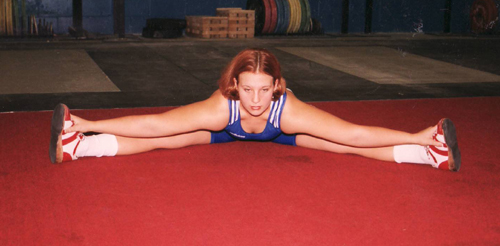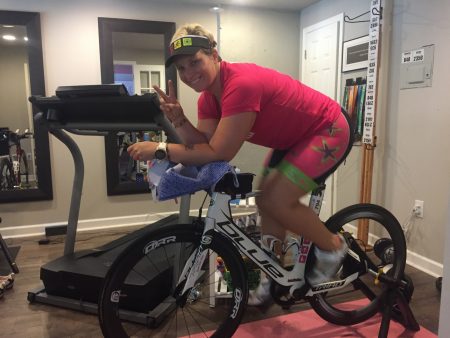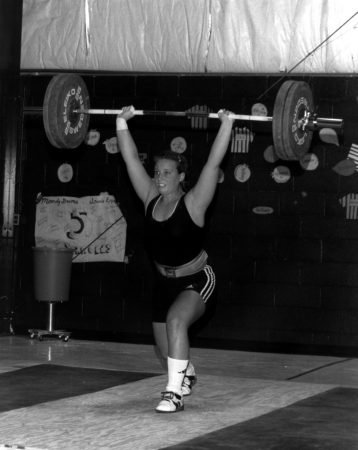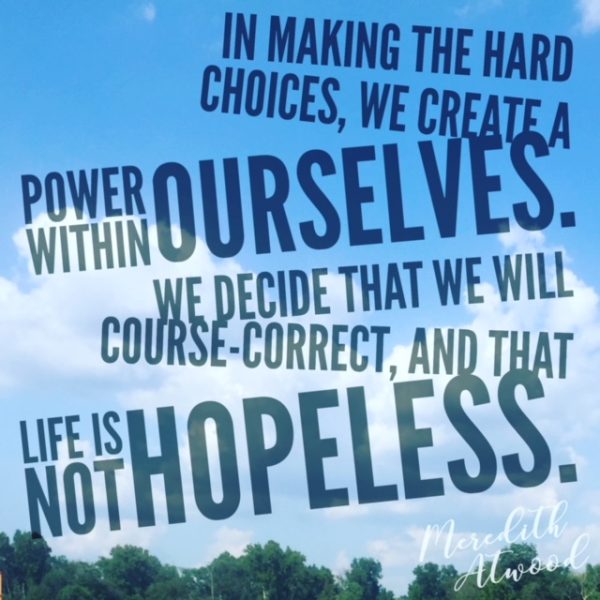In the prior post, I started a blog series talking about how being an Olympic weightlifter translated (or didn’t) to the sport of triathlon.

First, being “bendy” was good in weightlifting, and also is good in triathlon.
Sad part? (I am not still this bendy.)
I am bendy in other ways.

The word “talentless” (as a triathlete) was the word of the day in the last post—- something that comes to mind when I think about myself in triathlon.
First (if you are interested) go here to read more regarding Fast and Slow Twitch.
Next, I have the first two lessons to share that I have learned from weightlifting that also translate well to triathlon.
#1: Work Ethic is a Thing
I learned from a young age what “training” meant.
Most kids in eighth grade are playing basketball and practicing a few times a week or doing games here and there. Of course, there are the travel teams and the other more intense types of sports. However, back in 1993-1994, the sports world was a little less intense with kids versus how it is now.
Basketball in 8th grade was not “training.”
Weightlifting was “training.” I knew it was so because my friends outside of the sport thought I was a freak. (Nothing changes, eh?)
On top of that, training was 2-3 hours a day, 5-6 days a week. So I learned what a 12-18 hour training load felt and looked like, early on. (Newsflash: it felt like 12-18 hours a week. On top of school and homework. Much like regular life as an adult triathlete, actually.)
When I decide to start triathlon in 2010 and ramped up into the half iron training mode, these hours of work didn’t feel that foreign to me.
When I learned that a half ironman was really far and long and hard, I figured:
“Well, if I work hard, I can do that. Just like I started my weightlifting on day 1 with a small amount of weight… I ended at 236 pounds before I stopped lifting. I can do hard things if I work hard.”
I also learned what you do when you don’t feel like training, like you are sick as a dog, but you need to mentally push through. I felt lucky to learn that work ethic and drive early on, and that is something that has translated into triathlon.
For example, at Ironman Lake Placid in 2015… that was a tough race where I was knocked hard in the swim, had vision issues on the bike, and foot-pad blisters for days—and I kept plugging along. I feel that it was in my core, sort of ingrained in me to keep going, keep working.
That was a work ethic and discipline that I learned. It’s a fire in the belly that exists in me, even when it wanes a little. It’s like a pilot light–never quite goes out.
And while I am not perfect at discipline and motivation (remember: talentless), when I want to summon that bull-headed hard-working muse, I can.

#2: Temper Tantrums are Detrimental to Progress and to Reputation
This is a funny one.
I missed a lift one time at the gym.
[Suffice it to say, I was having a bad day.]
Our gym had these little kid-sized chairs that the coaches sat in, around the corner of the platforms.
I missed a lift, and in a fit of teenage-brat rage, I ran at the chair (no coach was in it), and I kicked it.
Well, like I said, it was kid-sized, and the damn thing flew across the room—-nearly hitting my actual coach a few platforms down.
He dodged. Thankfully.
My friends, Cara and Cheryl (the calm, collected and professional superstars that they are/were), stared at me, mouths wide-open.
My coach cursed under his breath.
And I learned what a bad idea having a temper tantrum was… right then and there. And I was humiliated. Seriously, I was so embarrassed at myself.
Like Mike Reilly says at the start of every IRONMAN, “The only think you can control today is YOU. So have a good attitude.”

That was a gift I learned from weightlifting, and one lesson that I am continually reminded to keep… it’s not always perfect. But when I get out of line, I can remember what a big brat looks like—and promise not to relive that again.
Because when we blow up, lose our tantrums, have bad etiquette — even if we are just mad at ourselves, we are doing far more harm then good. We are losing control of the situation, our emotions. We are messing with our own mental game. We are allowing outside factors to dictate inner dialogues.
(The list really does go on and on.)

The value of maintaining one’s composure in the face of challenges (in sport or life) is an incredible lesson–one that I will continue to learn over and over again, as I get older. But maintaining composure and class when we royally screw something up? Well, that takes a whole level of grace and class–something that I keep trying to aspire to.
But I am cognizant of it. And weightlifting gave me the gift of embarrassing myself at such a young age–I don’t do it on the triathlon race course (at least not in a bratty way) at an older age. [Sure, I may embarrass myself plenty—but it’s not because I am throwing a temper tantrum.]
Have you seen those forty-something age-groupers who throw fits on the course?
Yeah, they must’ve never had a nice sport in their younger years to teach them about tantrums–and how they really don’t do anyone any good.
Next post? A few more lessons for triathlon… from the weightlifting archives.
Thanks for reading,
M

